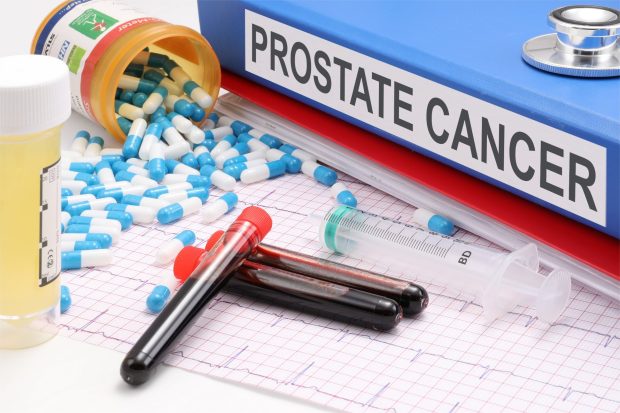I have been receiving several nasty emails every week demanding that I post my 2025 class schedule so that students can register. As much as I’d love to do so, I can’t. I don’t have any open enrollment classes scheduled for 2025 yet. I won’t be scheduling any more classes until at least May/June of next year. Read on for more details.
Most of you who have been reading my blog for awhile are aware that I have prostate cancer.
For those who are unfamiliar with my medical issues, I was diagnosed with prostate cancer early in 2020 following a biopsy triggered by an unusually high PSA blood test. Although my doctors recommended immediate treatment due to the aggressiveness of my cancer lesions, I chose to avoid treatment and monitor the progression of the disease instead.
I monitored it for just under three years until my MRIs showed that the cancer was about to break through the prostate capsule wall and spread. At that time I chose to undergo the TULSA ultrasonic prostate ablation surgery. It was a newer procedure that was not FDA approved in the United States at the time of my initial diagnosis. In the procedure, the heat from an MRI guided trans-urethral ultrasound destroys the prostate cancer with far less of a risk of sexual and urinary side effects as compared to traditional surgery or radiation.
I had the TULSA procedure in January of 2023. Two subsequent MRIs in the following year showed that the procedure was a success and I had no signs of remaining prostate cancer. Despite the clear MRIs, my PSA blood tests were rising consistently. Three consecutive rising PSA tests triggered a PMSA PET Scan to determine if the cancer had spread.
I had the scan back in May of this year.
During my TULSA surgery, the doctor ablated my entire prostate except for a thin margin of tissue nearest to the nerves that control sexual function. Before the surgery, my prostate volume was 35 cubic centimeters. After the ablation procedure, only 3 cubic centimeters of prostate tissue remained. The PET scan showed that cancer recurred in what little remained of my prostate gland. Additionally the cancer has spread to my pelvic lymph nodes.
Prostate cancer is considered very aggressive if PSA doubling time is between nine and twelve months. My PSA blood test levels are doubling every two months. My tumors have more than doubled in size in the last five months
In the last six months, my life has been a constant stream of cancer research and doctor appointments. I’ve had two different consultations with the doctor who performed my TULSA procedure. I had four more appointments with urological surgeons. I had an evaluation from a local radiation oncologist. Finally, I had a full workup at MD Anderson Cancer Center involving another PMSA Pet scan and three different appointments with radiation and medical oncologists.
The news hasn’t been encouraging.
Although there is a bit of debate about the topic, in general, prostate cancer is not considered curable once it has metastasized outside of the gland like my cancer has. The best one can hope for is fairly long term control of the disease progression. That control is achieved through a combination of radiation therapy and systemic testosterone hormonal suppression.
To cut to the chase, I had a very big decision to make. Using incredibly rough numbers generated from a combination of all my recent doctor appointments and a very thorough review of the academic literature, these are my options:
1. Do Nothing. If I don’t treat the cancer, I’ll most likely have 2-3 years of relatively symptom-free normal life before the cancer spreads to more important areas and things will start to seriously suck.
2. Radiation only. Gives me about a 40% chance of living cancer free for five+ years
3. Radiation plus testosterone hormone depletion. Gives me about a 70% chance of living cancer free for five+ years.
There are clearly better longevity outcomes if I treat the cancer. The problem is that those treatments will likely come with life-altering negative side effects.
The testosterone depletion means that I will have no sex drive and will physically be unable to ever have sexual intercourse again. It also means significant loss of athletic performance and muscle tissue. Over time, I’m likely to gain a significant amount of fat and become a metabolic disaster with dramatic increases in the risk of cardiovascular disease and diabetes. The lack of testosterone will cause premature bone loss, significant levels of “brain fog,” decreased mental acuity, and regular uncontrollable hot flashes.
The most recent studies indicate that while testosterone depletion is incredibly effective at halting the growth of prostate cancer, long term all-cause mortality actually INCREASES in patients who take their testosterone levels down to a level low enough to stop the cancer from growing. For an adventure-seeking power lifter who enjoys sex, testosterone depletion is the equivalent of a death sentence.
The radiation also has lots of issues, especially for someone like me who has already undergone previous prostate cancer treatment. The radiation treatment is 42-45 sessions done daily for five days a week. When factoring in the appointments for the radiation set up, additional CT scans and MRIs, the surgical placement of metal markers to guide the radiation machines, test sessions, and recovery time, my life will be put on complete hold for at least three months. I will be unable to teach or travel during that time.
Radiation will also most certainly damage my penile nerves, creating untreatable erectile dysfunction. Because of my previous treatment, it will also likely cause some level of urethral scarring and urinary incontinence. There is also a small chance of more serious side effects such as rectal fistulas and burns/scarring to the rectum, bladder, and urethra.
The real issue is that I am an extreme outlier in so many dimensions with regards to this disease progression. I can examine the studies, but very few of the study participants look like me. I’m approximately 25 years younger than the average person who is battling metastasized prostate cancer. My disease is progressing far more quickly than “normal” prostate cancer grows. One of my docs at MD Anderson told me he has never seen prostate cancer case progress as quickly as mine has.
I’m also an outlier in the fact that my initial treatment failed. My doctors at MD Anderson have only treated eight other patients with cancer recurrence after the TULSA procedure since the procedure was first approved in the USA five years ago.
All those study numbers don’t mean much. The doctors just haven’t seen enough patients like me to be able to say conclusively what my true prognosis is likely to be.
I had a decision to make. Do I want to have 2-3 years of a normal, symptom free life with almost certain death soon after? Or would I rather live 5+ years with a seriously diminished quality of life?
2025 Class Scheduling
I’ve been thinking hard for the past few months and I have decided not to treat my cancer at this time. Depending on where the cancer spreads, I may do some spot radiation on individual tumors in the future but I won’t be doing the hormone treatment or the 45 sessions of daily pelvic radiation.
That means I really don’t know how much time I have left. It may be less than a year. It may be five years or longer. I feel good now and have no current cancer symptoms.
Because I spent several months seeking medical treatment this summer, I didn’t get to travel as much as I usually do. Having a serious knee injury also limited my international adventures. My knee is slowly recovering. I’m going to attempt to catch up on my travel plans early next year so I won’t be scheduling any new classes until later in 2025.
I’m leaving today for my annual trip to Mexico for the holidays. When I get home, I will be teaching two classes that I had already scheduled during the first weekend in February. After that, I will be spending a few months traveling in Japan and through Eastern Europe.
I won’t be scheduling any classes next year until at least May of 2025 to ensure that they won’t interfere with my life plans.
Here’s the deal. I have a significantly shortened shelf life. With only a couple years remaining on the planet, I probably won’t be teaching as many classes as I have in the previous years. I will prioritize booking classes with the hosts who have consistently filled my previous events. If you would like to host a class between May and December of 2025, please contact me.
I’m probably going to only teach about one weekend a month from here on out. In talking with Tom Givens and Karl Rehn, I’m going to be offering some instructor level classes to help ensure my curriculum survives even after I’ve died
I’m happy with my decision and look forward to continuing to teach and write as long as I am physically able to do so. Please don’t send me details of whatever quack treatment you’ve heard cures cancer. Every time I post an update like this, I get a deluge of messages recommending “alternative” treatments that the sender believes are certain to cure me. While I know most of the people who send that information mean well, it’s utterly draining.
In the last four years of my disease progression, I’ve read every prostate cancer study published on PubMed in the last decade. I have read dozens of medical books and have spent hundreds of hours watching cancer videos on YouTube. Unless you have personally undergone prostate cancer treatment or are a doc working in the field, I promise that I know more about the disease than you do.
Yes, I know about Ivermectin and Fenbendazole. I’ve tried both for long periods of time. They have done nothing. Yes, I know about cannabis and Rick Simpson oil. Yes, I know about the ketogenic diet and the metabolic theory of cancer. Yes, I know about Vitamin B-17, crushed apricot seeds, and Essiac tea. Please trust that I’m aware of all my options and I don’t need any additional treatment suggestions.
Thanks for reading. I hope to see you in a class in the later part of 2025.


